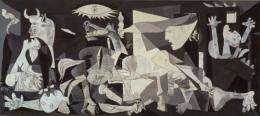March 29, 2010 weblog
Religion Distinct From Human Evolutionary Genetics: Garners University Professor Ayala Templeton Prize

University Professor Francisco Ayala, UC Irvine's esteemed researcher in evolutionary genetics, ecology and a former Dominican priest was awarded the Templeton Prize 2010 for his body of work spanning decades which in part ponders the relationship between Darwinian evolutionary theory and religious faith. He dispels religious populist views about Intelligent Design and pseudo scientific theories attempting to prove or disprove the existence of God. Ayala concludes; separate but equal respect for religion and science. As humans have evolved genetically, social norms derived from religious teachings interface and enhance human development. There is no contradiction between evolutionary theory and religion.
In University Professor Ayala's own words about ethics and evolution:
Ayala unequivocally finds no contradiction between science and religion because “if properly understood, they cannot be in contradiction because science and religion concern different matters and each is essential to human understanding.” Religion or faith determines the purpose, values and meaning of life. Science is an entirely different discipline devoted to the study of human organisms, chemistry, physics and biology within its earthly eco-system. The confusion or conflict arises when theorists attempt to intertwine the two equally important disciplines.
Professor Ayala was born in Madrid, Spain in 1934 and raised during the repressive Franco era. He was uniquely aware of the horrific slaughter of the innocents during the Spanish Civil War as depicted by Picasso in his monumental mural Guernica. Ayala refers to this masterpiece to explain the difference between science and religion. Science can assess the massive dimensions and pigment of the painting, but it takes religion (faith) to impart the horror bestowed on the peaceful village of Guernica in Basque country. The German Condor Legion unleashed its newly developed incendiary projectile bombs and thousands of pounds of bombs on the helpless village which resulted in the annihilation of innocent women and children. Perhaps the most chilling fact was the bombing was performed more or less as a training mission to test out the prowess of the newly acquired armament with the acquiescence of Franco.
Student Ayala was encouraged by priests in Spain to study science and he ultimately joined the Dominican Order. His priesthood was short lived finding the restrictive environment in Franco’s era not conducive to his view of the world. He arrived in the U.S. in 1961 and began his studies at Columbia University where he met and was inspired by Theodosius Dobzhansky, a leading geneticist and evolutionary biologist. Ayala was conferred a doctorate degree from Columbia in 1964. His doctoral thesis established that rates of evolution are dependant on the genetic variations within the specie.
Since 1964, University Professor Ayala, (a title conferred to him only among all professors at UCI), he has published thousands of research papers, authored Darwin’s Gift: To Science and Religion, 2007 and soon to be published, Am I A Monkey? Six Big Questions about Evolution due in October, 2010.
His discoveries in genetic research pertaining to the deadly disease Chagas revealed the parasite reproduces by cloning and not sexually, His recent work in malaria found the parasite causing malaria was originally transmitted to human beings within the past 5,000 from chimpanzees and possibly via one single mosquito. In January, 2010 he co-authored a paper which concludes the gorilla and chimpanzees are currently reservoirs for malaria parasites. Thus, even if a vaccine is developed the human population may always be vulnerable to re-infection.
About the Templeton Award:
The Templeton Prize is awarded annually to a living person who has made an exceptional contribution to affirming life’s spiritual dimension. The $1.5 million award will be awarded to University Professor Ayala in a ceremony officiated by HRH Prince Philip, Duke of Edinburgh on May 5th. Dr. John M. Templeton Jr., president and chairman of the Templeton Foundation stated, “Ayala's clear voice in matters of science and faith echoes the foundation's belief that evolution of the mind and truly open-minded inquiry can lead to real spiritual progress in the world."
More information:
UCI -- www.youtube.com/templetonprize ; UCI Department of Ecology and Evolutionary Genetics
The Idea of Intelligent Design is Blasphemous: Open Source Religion
Darwin's Gift to Science and Religion, (2007)
© 2010 PhysOrg.com
















